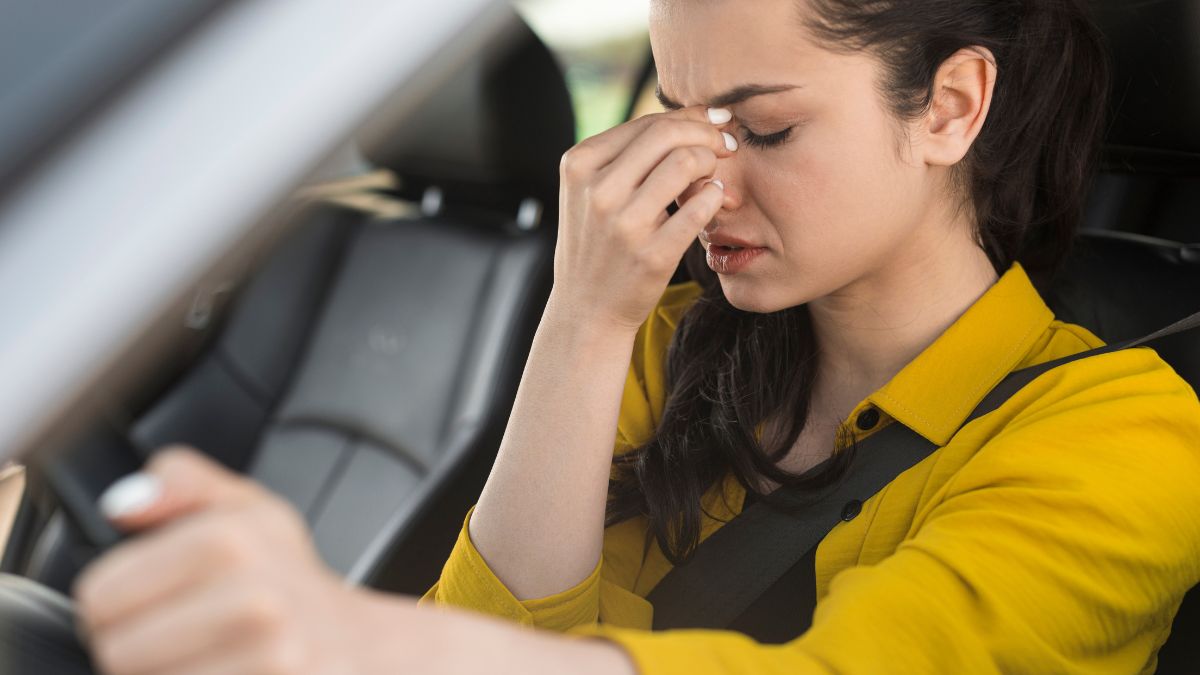
Monsoon season creates conditions that can easily affect your eye health. Due to the increased humidity, dampness, and pollution, the risk of irritation and infections increases, especially during daily commuting when close contact with others is common. Data from metro cities compiled by the All India Ophthalmological Society shows a 20–25% rise in conjunctivitis and other eye infections during this season. Along with these, fungal keratitis, styes, and allergic conjunctivitis become more frequent. The combination of moisture, pollution, and crowded spaces makes eyes more vulnerable. These factors highlight the importance of simple eye care habits during the monsoon to prevent infections and maintain eye health.
Table of Content:-
Why Your Eye Suffers During Monsoon
According to Dr Rishi Raj Borah, Country Director, Orbis India, “The rise in infections isn’t a coincidence; it is caused by certain environmental factors that are common during the monsoon. Humidity and damp air create ideal conditions for bacteria, fungi, and allergens to grow. These irritants often reach the eyes through rainwater, dirty hands, or splashes from puddles during daily travel. People on two-wheelers or in open vehicles face higher exposure to wind, dust, and polluted water, which can lead to redness, itching, watering, and discomfort.”
During this season, pollen and mold spores become more active and can easily trigger allergic conjunctivitis during monsoons, especially in sensitive eyes. This may cause swelling, irritation, and tearing, making it difficult to concentrate at work or while on the road.
Why Rubbing Your Eyes is Harmful

Once discomfort sets in, the most common response is to rub the eyes. But this reaction can do more damage than relief, especially during the monsoon. Hands come into contact with many surfaces throughout the day, picking up germs along the way.
“Touching your eyes directly with dirty, unwashed hands can transfer bacteria or viruses which may increase the risk of infection. Instead, you must use a clean towel, tissue or cotton pad to gently wipe your eyes,” suggests Dr Borah.
Also Read: Aggressive Eye Rubbing May Damage Your Eyes; Here’s How To Safely Remove Irritants Instead
Excessive rubbing can also damage the cornea, the clear outer layer of the eye. This may lead to small scratches, known as corneal abrasions, which can cause discomfort, light sensitivity, or infection. For contact lens users, rubbing the eyes can dislodge the lenses or damage their surface, leading to further irritation and a higher risk of infection.
Smart Eye Care Habits for Daily Commuters
During monsoons, crowded trains and buses increase the chance of eye infections in rainy season. You can lower this risk by following simple daily habits. Here are some suggestions by Dr Borah:
- Wear clear protective eyewear to keep rain and pollutants away from your eyes.
- Washing your hands often is very important. The World Health Organization says good handwashing can stop up to 50% of infections in healthcare settings.
- The Centers for Disease Control and Prevention reports that soap and water can cut diarrheal diseases by about 30% and respiratory infections by nearly 20%.
- A 2025 report from the National Foundation for Infectious Diseases shows handwashing can prevent up to 80% of infections by stopping germs from spreading through hands.
- Use disposable tissues instead of cloth handkerchiefs because cloth often holds germs.
- Avoid sharing towels, cosmetics, or pillows, as they can spread infections without you knowing.
- If rainwater gets into your eyes, rinse them with clean drinking water right away to wash out dirt and germs.
- Never use steroid eye drops without a doctor’s advice as they can slow healing and make infections worse.
- Children often rub their eyes with dirty hands; nearly 50% of conjunctivitis cases in kids during the monsoon happen this way. Older adults, especially those with diabetes, also face higher risks. Taking early precautions helps avoid serious problems.
Also Read: How To Use Antibiotic Eye Drops Safely: A Doctor’s Guide To Quick Recovery
Conclusion: Keeping Your Vision Safe
Dr Borah concludes by saying, “Monsoon commutes don’t have to put your eyes at risk, simple habits can make a big difference. The key message is straightforward: avoid rubbing your eyes; gently wipe them instead. Using clean tissues, wearing protective eyewear, and staying alert to early symptoms can help prevent infections and stop them from spreading.”
Our eyes deserve proper care. By choosing to wipe instead of rub and maintaining good hygiene, we protect our vision and reduce the risk of spreading common infections like conjunctivitis. Small, thoughtful steps can go a long way in keeping your eyes healthy during the rainy season. Taking care of your eyes helps keep both you and those around you safe.
Also watch this video
Read Next
How Often Should You Replace Common Household Items To Maintain Hygiene And Avoid Health Risks?
How we keep this article up to date:
We work with experts and keep a close eye on the latest in health and wellness. Whenever there is a new research or helpful information, we update our articles with accurate and useful advice.
Current Version